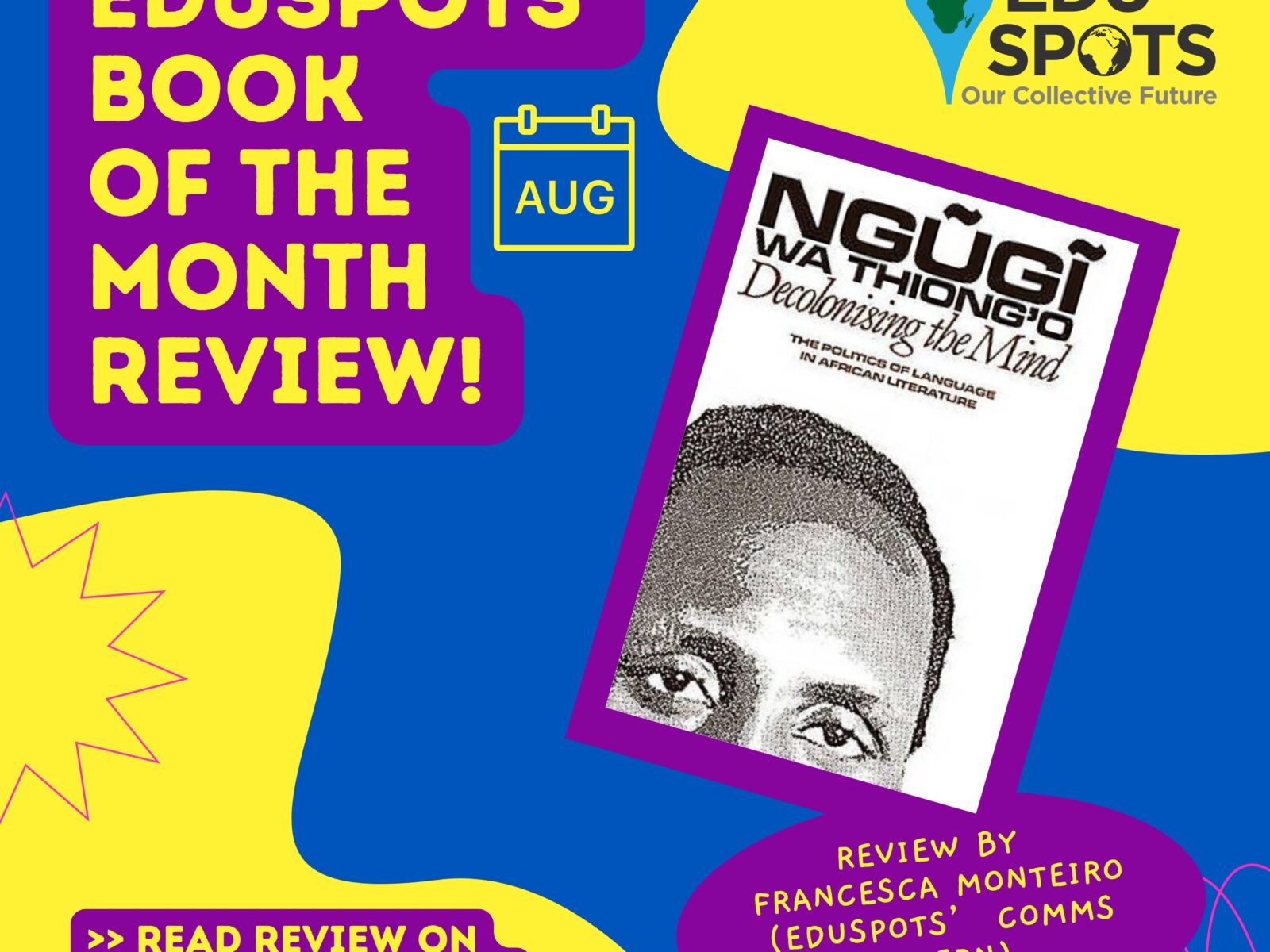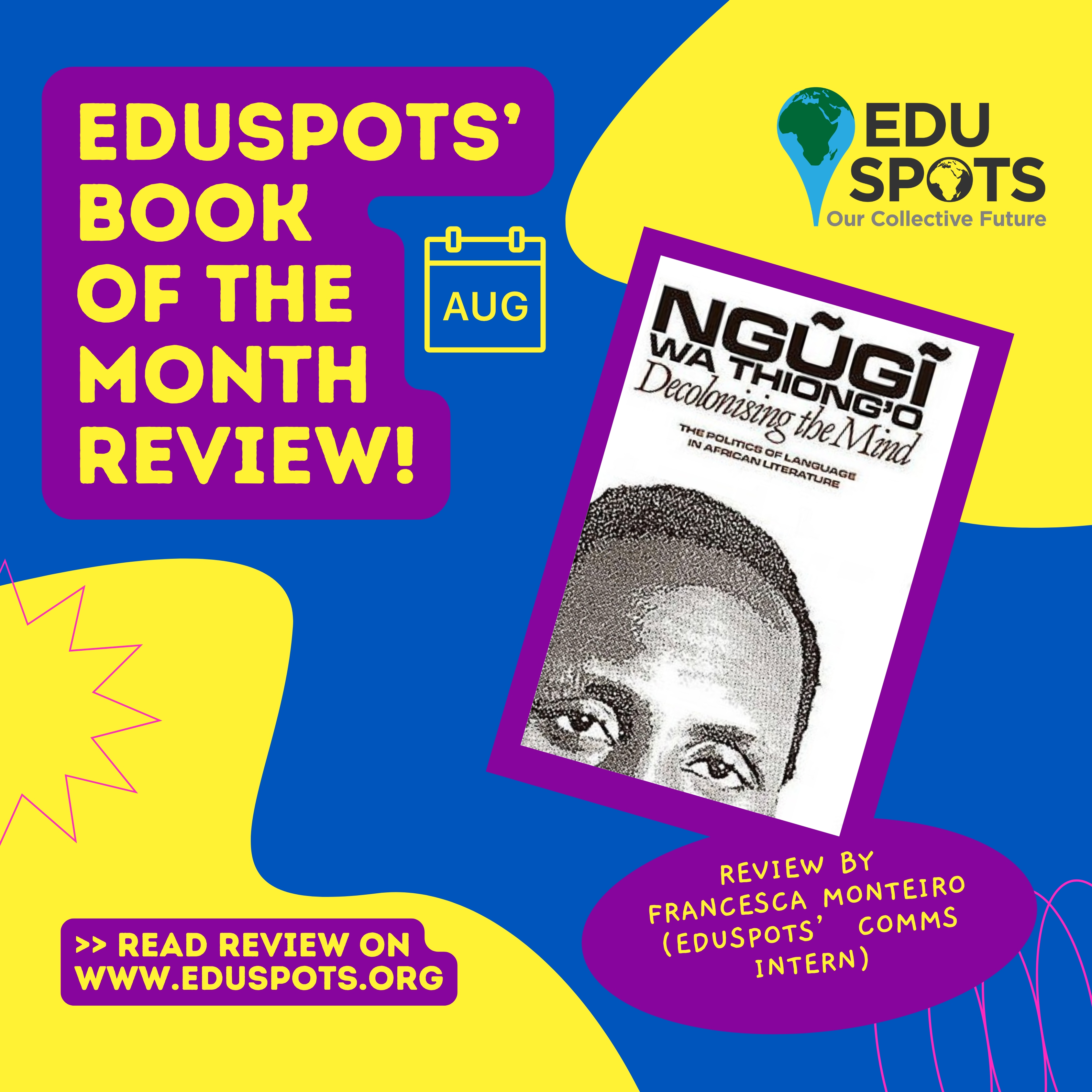Welcome back to our Book of the Month for August! This month, we have chosen to explore a recommended text, Decolonising the Mind by Ngugi wa Thiong’o, which delves into the effects of imperialist education and how we define African literature.
Decolonising the Mind, written in 1986, offers context to modern education systems in post-colonial Africa. Thiong’o’s credibility stems from his personal experience of actively campaigning to decentre European perspectives in universities as part of the Nairobi Literature Debate.
He opens the book with the question of what counts as ‘African literature’: is it literature about Africa or written by an African? Can it be African literature if a European writes about Africa, or even Europe, in an African language? Thiong’o seems to argue that language is the most overlooked element of African writing, and encourages us to focus on this above all else. He chose to start writing in his own language Giyuku to demonstrate his anti-imperialist stance, which he claims in itself is an act of defiance.
This debate leads on to Thiong’o challenging the authority given to colonial languages in Africa, mainly English, French and Portuguese. He debunks the argument that these should be upheld to unite different regions against imperialism and directs the conversation towards the preoccupation with making “the borrowed tongues carry the weight of our African experience.”
Thiong’o celebrates Gabriel Okara’s position on language change, where he says that avoiding the “desecration” of English is futile, and that we should embrace the evolution of the language to fit new cultures. He states that “living languages grow like living things” and each variety of English “adds life and vigour to the language while reflecting their own respective cultures.”
Chinua Achebe, too, believes in an adapted English “altered to suit new African surroundings,” further demonstrating that language is representative of a community’s identity.
Following his analysis of language evolution, Thiong’o goes on to highlight how powerful language was as a tool for colonialists gaining control. Colonialist powers utilised both physical and cultural weapons to obtain control, and Thiong’o focuses on the latter: “the night of the sword and the bullet was followed by the morning of the chalk and the blackboard.”
By enforcing European languages, it became much easier for colonialist ideologies to infiltrate into education systems, and therefore literature, history and culture. Students were now being shamed for using their mother tongue and acting as “witch-hunters” for each other, with high rewards for abiding by the colonial system and severe punishments for failing to do so.
The threat of “colonial alienation” arose, where distance was created between the language of family and community and the language of education. Thiong’o argues that imposing foreign languages on institutions is merely another form of deep-rooted imperialism and neocolonialism, acting as a means of post-violence control which threatens the advance of African literature and innovation.
“What is the difference between a politician who says Africa cannot do without imperialism and the writer who says Africa cannot do without European language?”
Thiong’o himself fought to make African writers the centre of university education, campaigning to move away from the Eurocentric ideas perpetuated by the other side of The Great Nairobi Literature Debate.
He fought for the shift of African literature away from the periphery, advocating for the inclusion of oral literature in the curriculum to be truly representative of Kenyan heritage and to potentially “foster attitudes of mind characterised by the willingness to experiment with new forms.”
Despite not being immediately successful in reforming university policy, Thiong’o sparked thought-provoking conversations which compelled institutions to reevaluate their policies and overall instigated critical debate within the writing industry.


